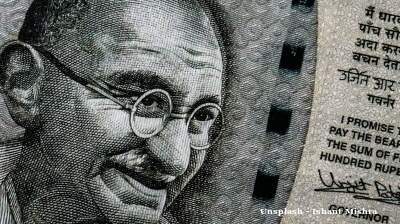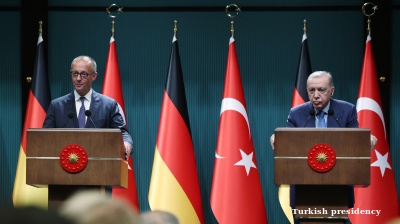Turkey has descended into an intensified coronavirus nightmare with no end yet in sight. It now stands second only to India for new infections and is set to overtake the UK in terms of its official number of cases. The economic damage the situation could cause to a country already mired in a debilitating economic crisis does not bear thinking about for a government that has already fallen out of favour with swathes of voters.
Active infections have hit a peak of 551,000, equivalent to nearly 1% of the 57mn working age people among the country’s population of 84mn, calculations based on health ministry data show (and let’s not forget that this official data is widely suspected of failing to relay the true extent of Turkey’s coronavirus outbreak, especially given the outcry last autumn when officials conceded they had been failing to include asymptomatic coronavirus cases in their infection figures).
Turkey is almost entirely covered by a "Red Alert". The coronavirus situation in the country as relayed by @KoronaReport as of April 18. The latest official map from the health ministry is dated March 20-26.
Official deaths from COVID-19 hit a record 341 on April 19 despite more than 20.3mn vaccines having been administered (with 9.38% of the population covered by two jabs so far, according to @KoronaReport). The US-based Institute for Health Metrics and Evaluation estimates Turkey’s coronavirus hospitalisation rate will peak next week, and its daily death rate around May 5, Reuters reported.
What went wrong?
Critics throughout last year complained that Turkey’s lockdowns were very much partial lockdowns rather than the stringent kind needed to corner the virus. And in early March, the Erdogan administration, desperate to get the wheels turning in the hobbled economy, appeared to move far too soon in lifting restrictions in favour of “controlled normalisation”. New cases hit an all-time high of more than 63,000 on April 16. They have multiplied five-fold since the loosening of social curbs six weeks ago.
Reversed course
With the virus outbreak surging to such alarming levels, it was no surprise when President Recep Tayyip Erdogan last week reversed course to tighten social restrictions for the Islamic fasting month of Ramadan (traditionally featuring the gathering of friends and families to break the fast), which started on April 13. But much more may be needed for Turkey to turn the corner.
Coronavirus cases per 100,000 people based on official data for April 10-16. Image from @KoronaReport.
An additional worry is that the country has largely relied on the CoronaVac shot from China’s Sinovac Biotech to provide coronavirus jabs, yet there remain serious doubts about the efficacy of this vaccine. Lately, officials, who have complained to Beijing about stark delays in the delivery of CoronaVac, have also started distributing some Pfizer-BioNTech shots.
The messaging as to the seriousness of the pandemic in Turkey has not been good. Opposition parties and other critics at the end of March condemned Erdogan and his government for organising a congress for the ruling Justice and Development Party (AKP) with thousands of people, many of whom were seen violating social distancing rules, or not wearing, or improperly wearing, masks.
“Social murder”
The head of the Turkish Medics Association, Sebnem Korucu Fincanci, has for weeks decried the March easing of restrictions as the biggest misstep in the Erdogan administration’s handling of the virus outbreak. The gains made over the winter were sacrificed, she said, describing the result as "social murder" in an interview with Reuters published on April 12. "We called this a 'social murder' because they already know what will cause these deaths, they do not have any preventative measures," she added, saying that intercity travel, manufacturing and public transportation should all be halted.
Just prior to that interview, Health Minister Fahrettin Koca told Hurriyet daily that the solution to the "serious rise" in infections was to speed up vaccinations, adding that he aimed to have all citizens over 20 years old vaccinated by July. Fincanci called Ankara's vaccination goals unrealistic and criticised what she said was the inaccurate reporting of case and death numbers. "They have to be realistic, they have to be transparent," she said.

A bakery shop closed due to COVID-19 restrictions in Izmir, Turkey (Image: Maurice Flesier, CC-BY-SA 4.0).
On April 11, Kemal Kilicdaroglu, the leader of Turkey’s main opposition party, the Republican People’s Party (CHP), urged the members of the country’s Science Board to speak out about the course of the pandemic in Turkey.
“Our Science Board is taken hostage,” Kilicidaroglu, after meeting with intensive care doctors, said in a video message he posted on Twitter. “They are all hostages of a person. They cannot do their job. I call on them; do not be afraid to speak, we are with you,” he stated, in an apparent reference to Erdogan.
Speaking to reporters on April 12, CHP spokesperson Faik Oztrak said: “The situation with intensive care services in the hospitals is alarming. We are facing the third wave of the pandemic. We faced the first two waves with the extraordinary efforts of our healthcare professionals. Unfortunately, we are meeting this latest wave with a tired health army.”
254 (or more) teachers lost
On April 13, speaking to bianet, the Education Labour Union chair, Orhan Yildirim, said 26 teachers had lost their lives to COVID-19 in the past 45 days and 254 teachers had died since the pandemic broke out in Turkey. He said that during visits to 30 provinces he had not met any teachers that had been vaccinated against coronavirus, apart from some teachers with chronic diseases, adding: "As if 26 teachers did not die in 45 days, the Minister of National Education goes from TV channel to TV channel, misleading the public and managing perceptions. The issue here is not solely about valour, but the lives of our teachers and education personnel are disregarded.”
On April 13, in a nod to the gravity of the situation while discussing the new phase of descriptions, Erdogan said: "If, in this two-week period, we cannot obtain the expected improvement in the picture we are targeting, implementing much tougher measures after that will become inevitable."
But there remains deep disquiet among Turkish health professionals that the government’s response to the health crisis continues to amount to too little, too late.
“If it [the government] keeps ignoring medical advice, the country will end up with a disaster,” Dr Guray Kilic, an executive board member of the Istanbul Medical Chamber, told Ahval in a podcast on April 16. The authorities were also seeking to suppress the voices of health workers, he said.

A monument to health workers in Bakirkoy, Istanbul (Image: Mereyu, CC-BY-SA 4.0).
Riot police on April 15 intervened in an anti-government protest by health workers in Istanbul as they gathered to make a press statement. The group called on the authorities to “stop the deaths”, Diken news website reported.
Kilic said the government was now forcing members of the medical profession to decide which patients lived and which died as hospitals became over-crowded. Calling for far stricter lockdowns, he said factories producing non-essential goods, construction sites and shopping centres should be closed for four weeks to help curb the spread of the virus.
“Two codes to cover up deaths”
Casting further doubt on the accuracy of the government’s portrayal of the impact of the coronavirus on the Turkish population, Turkish Medical Association (TTB) secretary general Vedat Bulut claimed to bianet on April 9 that “Turkey writes ‘natural death’ in the death certificates of those who had a negative PCR test, but had the clinical symptoms of COVID-19.” The TTB drew attention to one case in which the death certificate of a physician who was treated for COVID-19 for four months referred to their cause of death as "death from a non-infectious disease/natural death". Said Bulut: "Turkey has made up two codes to cover up the deaths."
While Turkey may be able, against better advice, to keep certain factories in operation amid the pandemic, it can do little to alleviate the huge hit its international tourism industry takes from countries refusing to allow their citizens to visit it.
Tourism accounts for around 11% of the country’s economy. It earned Turkey a record $34bn in 2019, but last year that figure plummeted by around $22bn despite some countries, including the UK, for long periods permitting their citizens to take holidays in the country when there was no persuasive evidence that, on a relative basis taking into account the various coronavirus outbreaks around the world, it was safe to do so.
The past year has seen several instances of complaints in the Russian press in which consumer rights watchdogs described how too many Russians back home from holidays in Turkey returned infected with coronavirus and often bring back mutated strains. Nevertheless, Moscow was all set to allow Russians to freely vacation in Turkey during the coming summer until, seemingly, geopolitics intervened.
On April 12, shortly after Erdogan had expressed some moderate but significant backing for Ukraine in its ongoing standoff with Russia over disputed territories, Russian Deputy Prime Minister Tatiana Golikova announced that Russia would restrict flights to and from Turkey from April 15 to June 1. She cited the escalating COVID-19 difficulties in Turkey as the reason, but many analysts concluded the move was in response to the position Erdogan had taken on Ukraine.
Turkey has said foreign tourists can be confident that tourism workers they encounter will have been vaccinated as part of a “Safe tourism” campaign, but the latest “red zones” map show top holiday spots including Antalya and Bodrum as in the highest risk coronavirus category. Istanbul, meanwhile, is the worst hot spot of all.
Features

COMMENT: For Asia, dealing with Europe isn’t about achieving success; it’s about concealing failure
To be taken seriously in Asia, Europe must rediscover the courage to deliver, not merely declare. Asia has moved on to execution. Europe is still editing its initial policy draft.

Washington has a new focus on a Caspian energy play
For most of the last three decades since winning independence, Central Asia has been a bit of a backwater. Not any more. The Trump administration is becoming more focused on Turkmenistan's vast gas reserves and can smell money and power there.

BOTAŞ and Turkey’s hub ambition: from “30-year dream” to cross-border reality
For Ankara, the symbolism is as important as the molecules: Turkey’s energy map is shifting from end-market to hub.







